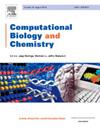Metagenomics studies in aquaculture systems: Big data analysis, bioinformatics, machine learning and quantum computing
IF 2.6
4区 生物学
Q2 BIOLOGY
引用次数: 0
Abstract
The burgeoning field of aquaculture has become a pivotal contributor to global food security and economic growth, presently surpassing capture fisheries in aquatic animal production as evidenced by recent statistics. However, the dense fish populations inherent in aquaculture systems exacerbate abiotic stressors and promote pathogenic spread, posing a risk to sustainability and yield. This study delves into the transformative potential of metagenomics, a method that directly retrieves genetic material from environmental samples, in elucidating microbial dynamics within aquaculture ecosystems. Our findings affirm that metagenomics, bolstered by tools in big data analytics, bioinformatics, and machine learning, can significantly enhance the precision of microbial assessment and pathogen detection. Furthermore, we explore quantum computing’s emergent role, which promises unparalleled efficiency in data processing and model construction, poised to address the limitations of conventional computational techniques. Distinct from metabarcoding, metagenomics offers an expansive, unbiased profile of microbial biodiversity, revolutionizing our capacity to monitor, predict, and manage aquaculture systems with high accuracy and adaptability. Despite the challenges of computational demands and variability in data standardization, this study advocates for continued technological integration, thereby fostering resilient and sustainable aquaculture practices in a climate of escalating global food requirements.
水产养殖系统中的宏基因组学研究:大数据分析、生物信息学、机器学习和量子计算
最近的统计数据表明,新兴的水产养殖领域已成为全球粮食安全和经济增长的关键贡献者,目前在水生动物生产方面超过捕捞渔业。然而,水产养殖系统固有的密集鱼类种群加剧了非生物应激源,促进了病原体的传播,对可持续性和产量构成了风险。本研究深入探讨了宏基因组学的变革潜力,这是一种直接从环境样本中提取遗传物质的方法,用于阐明水产养殖生态系统内的微生物动力学。我们的研究结果证实,在大数据分析、生物信息学和机器学习工具的支持下,宏基因组学可以显著提高微生物评估和病原体检测的准确性。此外,我们探索量子计算的新兴作用,它承诺在数据处理和模型构建方面无与伦比的效率,准备解决传统计算技术的局限性。与元条形码不同,元基因组学提供了广泛、公正的微生物生物多样性概况,彻底改变了我们以高精度和适应性监测、预测和管理水产养殖系统的能力。尽管计算需求和数据标准化的可变性带来了挑战,但本研究倡导继续进行技术整合,从而在全球粮食需求不断上升的气候下促进有弹性和可持续的水产养殖实践。
本文章由计算机程序翻译,如有差异,请以英文原文为准。
求助全文
约1分钟内获得全文
求助全文
来源期刊

Computational Biology and Chemistry
生物-计算机:跨学科应用
CiteScore
6.10
自引率
3.20%
发文量
142
审稿时长
24 days
期刊介绍:
Computational Biology and Chemistry publishes original research papers and review articles in all areas of computational life sciences. High quality research contributions with a major computational component in the areas of nucleic acid and protein sequence research, molecular evolution, molecular genetics (functional genomics and proteomics), theory and practice of either biology-specific or chemical-biology-specific modeling, and structural biology of nucleic acids and proteins are particularly welcome. Exceptionally high quality research work in bioinformatics, systems biology, ecology, computational pharmacology, metabolism, biomedical engineering, epidemiology, and statistical genetics will also be considered.
Given their inherent uncertainty, protein modeling and molecular docking studies should be thoroughly validated. In the absence of experimental results for validation, the use of molecular dynamics simulations along with detailed free energy calculations, for example, should be used as complementary techniques to support the major conclusions. Submissions of premature modeling exercises without additional biological insights will not be considered.
Review articles will generally be commissioned by the editors and should not be submitted to the journal without explicit invitation. However prospective authors are welcome to send a brief (one to three pages) synopsis, which will be evaluated by the editors.
 求助内容:
求助内容: 应助结果提醒方式:
应助结果提醒方式:


